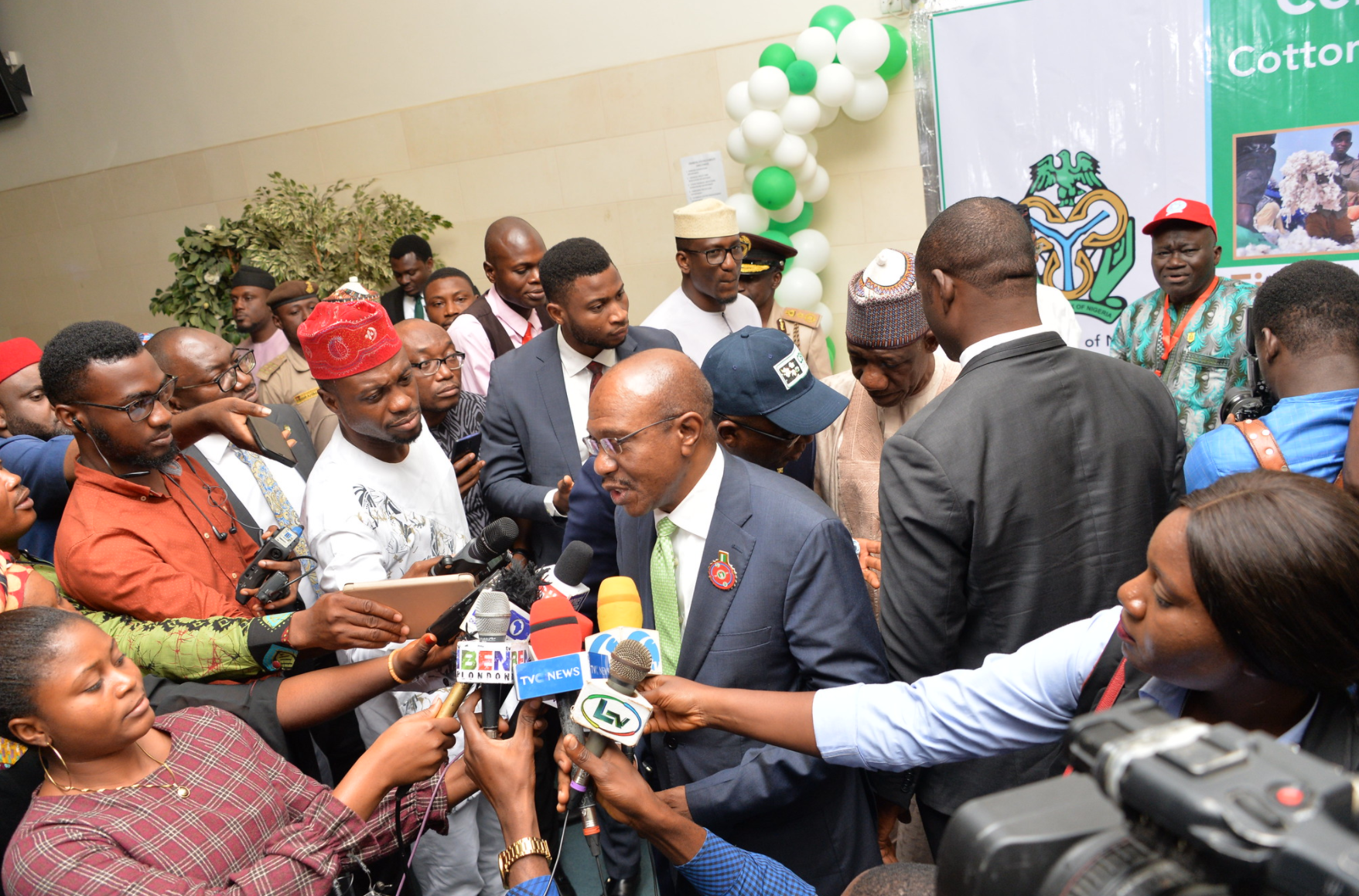To save the naira, CBN now allows diaspora remittances to be withdrawn dollar cash.

The Central Bank of Nigeria (CBN) has announced the amendment of procedures for receipt of
diaspora remittances in an apparent and frantic attempt to improve liquidity in the forex market and reduce the disparity between the black market and official I&E window.This disclosure was made in a circular issued by the CBN on Monday, November 30, 2020, to all authorized dealers and the general public and signed by its Director for Trade and Exchange Department, Dr O.S. Nnaji.
What the CBN is saying
In the new amended procedure, CBN stated that beneficiaries of Diaspora Remittances through International Money Transfer Operators (IMTOs) shall henceforth receive such inflows in foreign currency (US Dollars) through the designated bank of their choice.
The CBN’s circular partly reads,
‘’In an effort to liberalize, simplify and improve the receipt and administration of diaspora remittances into Nigeria, the Central Bank of Nigeria (CBN) wishes to announce as follows;
Beneficiaries of Diaspora Remittances through International Money Transfer Operators (IMTOs) shall henceforth receive such inflows in foreign currency (US Dollars) or into their ordinary domiciliary account. Such recipients of remittances may have the option of receiving these funds in foreign currency cash (US Dollars) or into their ordinary domiciliary account.’’
- The apex bank also stated that such recipients of remittances may have the option of receiving these funds in foreign currency cash (US Dollars) or into their ordinary domiciliary account.
- The CBN stated that these changes are necessary to deepen the foreign exchange market, provide more liquidity and create more transparency in the administration of diaspora remittances into Nigeria.
- The apex bank also points out that these changes would help finance a future stream of investment opportunities for Nigerians in the Diaspora, while also guaranteeing that recipients of remittances would receive a market-reflective exchange rate for their inflows.
- It also urged all authorized dealers and the general public to note that beneficiaries shall have unfettered access and utilization to such foreign currency proceeds, either in cash and/or in their domiciliary accounts in line with the circular.
What this means
This new directive means when Nigerians living in diaspora transfer money to loved ones in the country, they can in turn withdraw the money in dollar cash and sell wherever they want to.
- Currently, the exchange rate in the black market is around N500/$1 compared to N395 at the official BDC market.
- Now, Nigerians who recieve foreign transfers such as Western Union or Moneygram can withdraw it in dollars and then sell at the black market rate or wherever they want to.
- Currently, most Nigerians living in diaspora who transfer cash to loved ones back home do so at the parallel market exchange rate, Nairametrics can confirm.
The optics
Nairametrics believes this latest move by the CBN is aimed squarely at improving liquidity in the retail end of the foreign exchange market hoping that this will strengthen the naira at the retail end of the black market.
- In a news interview on Arise TV, Dr. Nnaji explained that “when you have more inflows into the country at dollar value it will help bring down the BDC rates, it will also help solidify or unify the rates in the market so we don’t have multiple currency rates,” a confirmation that this is targeted at the black market.
- A visibly pertubed and contrite Nnaji reiterated that “for now because US dollar is a currency that we have available in the banking sector, you can collect your money in US dollars” maintaining that this was the only currency that you withdraw for now.
- She also claimed you can collect in Naira.
- Nigeria receives an average of $5 billion per quarter in foreign remittances but suffered a sharp drop in the second quarter of 2020 when it fell to $3.38 billion.
Flashback on Dr. Nnaji
Earlier in the year, Nairametrics reported that the CBN claimed it was investigating remittances in the diaspora between January 2016 and December 2019. Ironically, the same person who made the claim was Dr. Nnaji. Here is what she said;
“If the dollar and euro are everywhere, what happens to our currency, the Naira now is not an internationally accepted currency, if we dilute it, it will have consequences. We want our Naira to be acceptable by other West African countries; we want it to be an internationally accepted currency.
“If we have more funds come in as remittances, our foreign reserves go up, and when that happens, the confidence in the Nigerian economy will go up. It helped in price stability and exchange rate stability management and that the apex bank was interesting in increasing Diaspora remittances,”

No comments:
Post a Comment